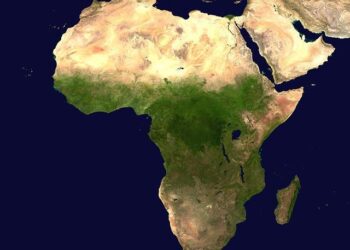Property Dealers in Monaco: The End of a Golden Age?
Monaco’s real estate market, long hailed as a bastion of luxury and exclusivity, is showing signs of transformation that may herald the end of a prosperous era for property dealers. Once thriving amid relentless demand from the world’s wealthiest buyers, industry insiders now face mounting challenges as regulatory changes, shifting investor priorities, and economic uncertainties reshape the landscape. In this report for l’Observateur de Monaco, we examine the factors contributing to this pivotal moment and explore what lies ahead for the principality’s once-booming property trade.
Monaco’s Property Market Faces Unprecedented Challenges Amid Global Economic Shifts
Once seen as a steadfast haven for luxury real estate investments, Monaco’s property sector is now navigating turbulent waters. The simultaneous impact of rising global interest rates, geopolitical tensions, and inflationary pressures has dampened the appetite of international buyers who traditionally fueled this market. High-net-worth individuals are increasingly cautious, delaying acquisitions or opting for assets in more economically stable regions. Moreover, government-imposed regulations aimed at increasing housing accessibility have introduced additional layers of complexity for property dealers, altering longstanding business models.
The consequences are visible across various segments:
- Luxury Apartments: Price growth has stalled, with some units remaining unsold for extended periods.
- Commercial Properties: Demand is shaky due to shifting corporate strategies in a post-pandemic landscape.
- New Developments: Project delays are becoming common as developers reassess timelines and budgets.
| Property Type | 2023 Price Variation | Average Sale Time |
|---|---|---|
| Luxury Villas | -3% | 4 months |
| High-end Apartments | 0% | 6 months |
| Commercial Spaces | -5% | 7 months |
Inside the Struggles of Local Dealers Navigating New Regulatory and Financial Pressures
The landscape of property dealing in Monaco is undergoing a seismic shift, as local agents grapple with an evolving set of challenges that threaten to disrupt what was once a flourishing market. Tighter financial regulations and heightened scrutiny from regulatory bodies have increased compliance costs, forcing many smaller dealers to reconsider their business models. These changes not only introduce operational complexities but also reduce access to traditional banking facilities, making it harder for dealers to secure the necessary capital to close high-value transactions swiftly. Industry insiders report that this new environment favors larger, more capitalized firms, potentially marginalizing the boutique dealers who historically thrived on agility and personal connections.
Adding to the strain, the recent amendments in property laws have intensified reporting requirements and imposed stricter due diligence protocols. Dealers now find themselves navigating a maze of bureaucratic hurdles that delay transactions and inflate administrative expenses. Trade associations have highlighted key areas where dealers are most impacted:
- Mandatory reporting of foreign buyer information
- Enhanced anti-money laundering checks
- Increased capital reserve requirements
- More frequent audits and inspections
| Pressure Point | Impact on Dealers |
|---|---|
| Bank Lending Restrictions | Reduced loan approvals, higher interest rates |
| Compliance Costs | 30% rise in administrative expenses |
| Transaction Delays | Average delay increased from 2 to 6 weeks |
| Market Competition | Consolidation favors large players |
Strategies for Property Dealers to Adapt and Thrive in an Evolving Monaco Real Estate Landscape
In a market as dynamic and competitive as Monaco’s, property dealers must leverage agility to remain competitive. Embracing digital transformation is no longer optional but essential; from virtual tours and AI-powered client management systems to blockchain for secure transactions, technology can streamline operations and enhance client experience. Furthermore, cultivating a deep understanding of the ultra-high-net-worth clientele’s evolving preferences – such as sustainability and exclusivity – enables dealers to better tailor their offerings and build lasting relationships.
Adaptation also requires diversification. Dealers should consider broadening their portfolios beyond traditional luxury properties and explore emerging niches like eco-friendly developments and short-term luxury rentals. Strong networking within Monaco’s tight-knit community remains crucial; collaboration with legal experts, tax advisors, and international brokers can unlock complex deals that others might miss. Below is a snapshot of key focus areas for dealers aiming to thrive:
- Embrace PropTech innovations to optimize marketing and sales pipelines.
- Enhance client personalization through data analytics and bespoke services.
- Diversify assets by including emerging property types and investment models.
- Strengthen local and international partnerships for seamless cross-border transactions.
- Stay informed on regulatory changes affecting Monaco’s real estate tax and ownership laws.
| Strategy | Benefit | Example |
|---|---|---|
| Virtual Reality Tours | Improves property showcasing remotely | 360° immersive Monaco penthouse visits |
| Eco-Friendly Projects | Attracts niche market of green investors | Solar-powered luxury villas |
| AI-Driven CRM | Streamlines lead management | Automated personalized client outreach |
In Retrospect
As Monaco’s real estate market faces increasing regulatory scrutiny and shifting economic tides, the era that propelled property dealers to unprecedented heights appears to be drawing to a close. While the Principality remains a coveted destination for luxury investments, industry insiders acknowledge that the golden age of rapid growth and effortless gains is giving way to a more complex and cautious landscape. For property dealers navigating this new reality, adaptability and innovation will be key to sustaining success in Monaco’s evolving market. The coming months will reveal whether this historic sector can reinvent itself or if the end of an era is indeed upon the famed Mediterranean enclave.















